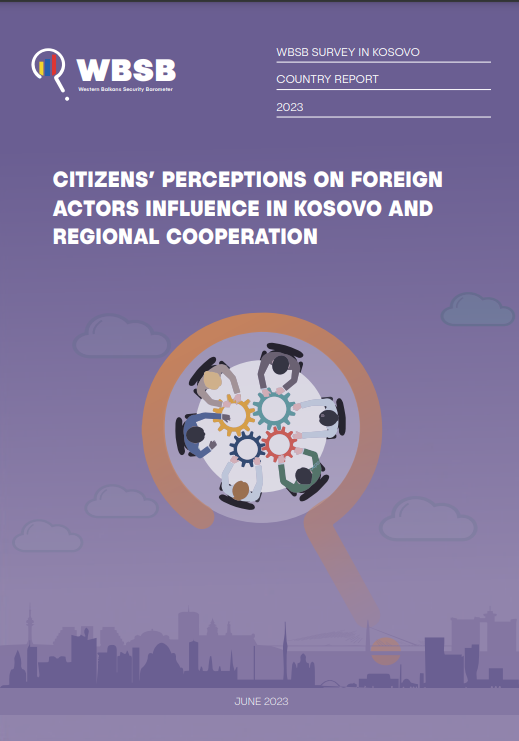10/07/2023

The general perception of respondents towards Western countries such as the USA (91 percent), Germany (90 percent), Austria (84 percent), and the United Kingdom (83 percent) is positive. Conversely, negative perceptions are held towards states that do not recognize Kosovo, such as Russia (86 percent), Greece (69 percent), China (65 percent), Spain (61 percent), and Iran (49 percent). The positive impact of Western actors in Kosovo is evident in their aid, assistance, and support throughout the state-building process of Kosovo. Their foreign agendas, aimed at promoting democracy and providing economic and financial support, have greatly facilitated Kosovo’s advancement as a young state. Conversely, perceptions of malign influences align with the hindrances posed by countries like Russia, China, and Spain. These nations have impeded Kosovo’s progress by obstructing its participation in crucial processes, blocking its membership in international organizations, refusing to acknowledge its independence, and disregarding its institutions. These actions have contributed to the negative perceptions of these countries among respondents, reflecting their adverse impact on Kosovo’s development. Regarding regional countries, 90 percent of the respondents view Albania as having the most positive impact, while Serbia is perceived as the regional country with the most negative impact. In terms of regional cooperation, 69 percent of respondents support it, while 24 percent oppose it. Similarly, 70 percent of respondents support the free movement of labor and goods within the region, while 24 percent hold an opposing view. However, only 31 percent of respondents support the so-called Open Balkan Initiative, while 52 percent are against it. The Open Balkan Initiative, a regional effort to promote cooperation in the Western Balkans, has elicited a mixed response among the public in Kosovo. The lack of a clear written statute and undefined objectives have led to confusion, with many perceiving the initiative as a means for Serbia to consolidate its dominance in the region. These factors contribute to the complex dynamics and uncertainties surrounding the Open Balkan Initiative in Kosovo. Respondents who support the Open Balkan Initiative argue that it improves regional cooperation, establishes freedom of movement in the region, generates employment, and fosters economic development. On the other hand, those who oppose it argue that it empowers Serbia, discriminates against Kosovo’s position in the region, and weakens Kosovo’s economy.
The data presented in the report derive from the Western Balkans Security Barometer (WBSB) survey. WBSB is a new regional initiative launched by KCSS in 2020, implemented in cooperation with the Belgrade Centre for Security Policy (BCSP) in Serbia and Center for the Study of Democracy and Governance (CSDG) in Albania, supported by the National Endowment for Democracy (NED). WBSB serves as an instrument to measure public perceptions in Albania, Kosovo and Serbia on different security-related issues. The findings demonstrate how citizens percept or are informed about the issues presented in this report. As such, the views presented in this report do not necessarily represent the views of the KCSS, BCSP, CSDG or NED.